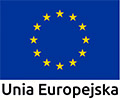On March 28, the youth from Magdeburg visited the Treblinka Museum. The group consisted of 25 people, accompanied by tutors: Edward Sułek, PhD and Peter Wetzel. The four-day visit began with a joint meeting of German and Polish youth at the memorial tree in the Korczak Forest. Last year, representatives of two schools from Berufsbildende Schule “Dr Otto Schlein” and Stanisław Staszic School in Małkinia Górna planted a tree together. On a commemorative plaque, they placed Janusz Korczak’s quote: “We are brothers of one land. Centuries of common destiny and misery – a long journey together – one sun shines on us. “
The youth from both countries emphasized how important is the memory of Janusz Korczak and how close his ideas are to them. The ideas which they decided to cultivate. Then, they met with the director of the museum. On the first day, the youth from Germany learnt about the history of the Treblinka II Extermination Camp, including the accounts of the prisoners of the camp. At the end of the day, they paid tribute at the main monument with a minute of silence, laid flowers and lit candles.
On the next day, guests from Germany met the granddaughter of the Lubkiewiczs, Grażyna Olton. They met at the stone commemorating the tragic history of her family. A year ago, youth representatives from this school laid five “Stolperstein” there [trans. memorial stones] dedicated to: Marianna, Leon and Stefan Lubkiewicz and Jewish women: Elizówna and Czapkiewiczówna. Then, the students went back to the Museum to continue learning about the history of the Treblinka camps. On the third day of their stay, they listened to a lecture about Janusz Korczak’s life. They also watched the film “Korczak” by Andrzej Wajda. At the end of the visit, the youth shared their impressions of the visit at the Museum. Most of the participants said that the visit to the Treblinka Memorial Site was very emotional and informative. They said they wanted to share about everything they had learnt with their friends in Germany. They also visited the Umschlagplatz and the POLIN Museum of the History of Polish Jews in Warsaw.





